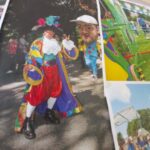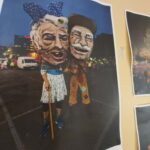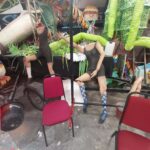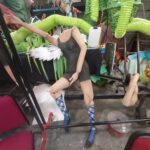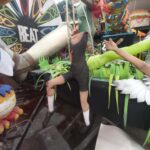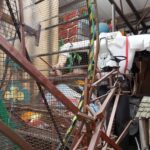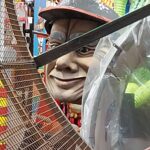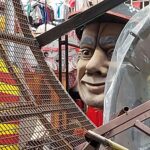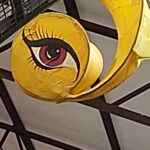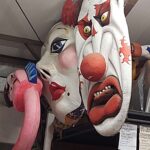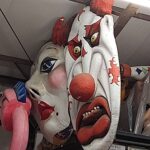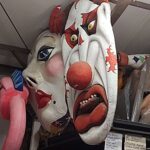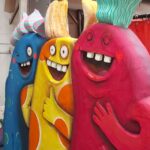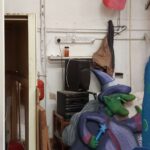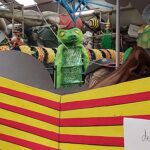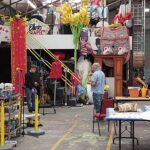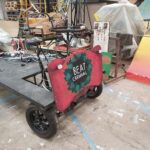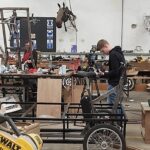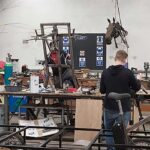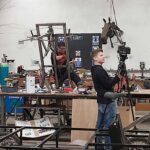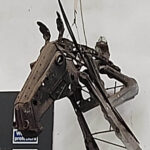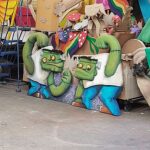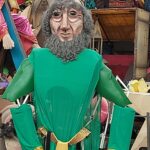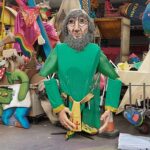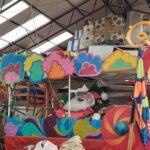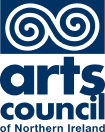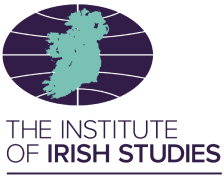Overview
The Beat Carnival was produced through a programme of creative arts and community development. The Beat Carnival 1995 began as a carnival project, conceived as an alternative to the political parades, and to become a visible presence on the streets of East Belfast and in the city centre. The Beat Carnival began during a period of conflict and sectarian tensions around ownership and access to city streets and space, but also at a time of questioning, challenging and looking for an alternative Belfast; and at a moment when artists were challenging their own role and relationship to the city and the communities that made up the people.
Lead creatives
David Boyd
Participating groups
Artists
East Belfast Communities
Belfast city centre audiences
Key aims and rationale
David Boyd, founder of Beat Carnival, had always envisioned art as a way of shaping society and to challenge negative perceptions of Belfast, which by the end of the 1990s was a “bleak and divided” society. The challenges raised by the Beat Carnival and the differences between those for and those against the project’s use of the streets and the city centre, reflected the politics of that time, not just the conflict but also the regeneration of the city. For example, as well as animating the streets, it was designed to keep artists and creative people in the city. It created a legacy, for example it helped to create a template or model of practice for a civic-arts, using performance, carnival and popular musical forms like drumming as an alternative to political parades. It helped create a model for using art as a vehicle for resolving divisions. Using artists and art to bring about community development, as well as events such as parades, festivals and workshops, the Beat Initiative, now the Beat Carnival Centre, continues to produce spectacular carnival arts in ways that leave a legacy of creative skills, collaboration and celebration in our communities. Projects engage the imagination of a broad range of people and highlight community and carnival arts in Northern Ireland’s creative landscape.
Peace related issues
Building shared space
Contested spaces
Contested traditions
Linked and legacy projects
Beat Carnival remains as a full-time, producing Carnival Arts organisation. It was established in 1993, creating carnival arts, organising and producing performances, training and developing artists and encouraging community participation and ambition. It began with the ‘Big Bang’, a multi-arts event for young people in East Belfast in 1993. The Beat Initiative company (later Belfast Carnival) was formed and based at the East Belfast Arts Centre (the former East Belfast YMCA landmark building). After 1998, the Beat Initiative continued to make a direct contribution to peacebuilding, for example through the work of the 1998 St Patrick’s Day parade project. Beat Carnival is a full-time, producing Carnival Arts organisation, established in 1993, creating carnival arts, organising and producing performances, training and developing artists and encouraging community participation and ambition.
Example YouTube Video
Key Information
Lead OrganisationBeat Initiative
02/01/1995
09/09/1995
Contact Information
info@beatcarnival.com
028 9043 4767
Beat Carnival Centre
11-47 Boyd Street
Belfast BT13 2GU
Online Resource(s)
https://belfastmedia.com/beat-carnival-30-anniversary
Interview conducted for University of Liverpool Recovering the Art of Reconciliation workshop at East Side Arts, 28 June 2024
Interview conducted for University of Liverpool The Art of Reconciliation research project at the Beat Initiative, June 2022

